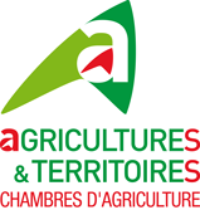Document type : Article published in Le Monde
Authors: Mathilde Gérard and Mariama Darame
Preview: Although 146 parliamentarians have given their support to the initiative, that of 39 further elected representatives is still required before the proposal can move on to the stage of collecting signatures from citizens.
For several months now, the number of parliamentarians who support the principle of a Citizens' Referendum Initiative (RIP) on animal welfare and rights has stalled at 146. For the process to to begin again and move on to the stage of collecting signatures from citizens, 39 additional parliamentary representatives or senators would have to endorse the principle: a step that seems increasingly out of reach.
Launched at the beginning of July 2020 by three entrepreneurs - Xavier Niel (Iliad group, also an individual shareholder in Le Monde), Marc Simoncini (founder of the Meetic website) and Jacques-Antoine Granjon (Veepee, formerly Vente privée) - along with the facilitator Hugo Clément, the initiative was pulled together with some twenty associations involved in animal protection. Six measures were selected to be promoted for debate, including a ban on cage farming by 2025 and on intensive farming by 2040, along with an end to fur farming, hunting for furs and shows featuring wild animals.
A few days after the project was launched in the summer, dozens of parliamentarians of all political stripes had expressed their support, but the proposal now seems to have hit its glass ceiling. In the face of very hostile reactions from certain groups, particularly from the pro-hunting lobby, twenty-three elected representatives (nineteen deputies and four senators) chose to back-pedal, withdrawing their support. The new Senate at the end of September did not bring with it the fresh wave of signatories that some had hoped for.
A shame to reject debate
The RIP process, which is strictly regulated, includes a number of successive stages: first, it must gain the approval of at least 185 members of parliament, and then, once this has been achieved, and within nine months, the approval of 4.7 million citizen signatures. If these signatures have been successfully collected (this was the step at which an earlier RIP project to prevent the privatisation of the ADP Group (formerly Aéroports de Paris) foundered), the bill must then be debated in Parliament and, if it is not adopted, put to a referendum.
I think that unfortunately the Citizens' Referendum will not prosper," comments Loïc Dombreval (LRM) who represents the Alpes-Maritimes. Even if I do not agree with everything in the text, I think it is a shame to reject debate, even on subjects that arouse strong feelings". In the view of several representatives, it is precisely because the text of the RIP includes provisions on farming and hunting that some MPs refuse to support it. I am very angry at those who signed initially and then withdrew," says Dimitri Houbron, (Agir Ensemble) who represents the North of France. Of course there is pressure, but I remain convinced that it is a just cause. This referendum has the merit of simply asking for a debate on these issues."
Although elected representatives are no longer rushing to support the initiative, the referendum website continues to receive new registrations - just over 900,000 at the end of January - in anticipation of a possible signature-collecting phase for citizens. For the promoters of the RIP, this demonstrates a gap between the posiiton of elected representatives and peoples' expectations: "Even though we are not campaigning, the referendum continues to build agreement among French citizens; the stumbling block lies with the parliamentarians," says Jennifer Bierna, a communicator who is one of the six original core group members who initiated the RIP. She continues: "If we restrict the debate from the outset because we are afraid, then our democracy is sick." In the view of the chair of the National Assembly's Economic Affairs Committee, Roland Lescure (LRM), RIPs are "often used as a means to bypass Parliament, particularly on subjects where it is easy to be ruled by dogma. »
However, the initiators of the RIP have not yet acknowledged defeat. "We're in no hurry, we knew it was going to take a long time. As there is no legal time-limit, we can continue the process for months or even years," says Hugo Clément. Moreover, the Bill on animal abuse proposed by the majority, which has two provisions (on circuses and dolphinariums and on mink farms) that echo clauses in the RIP, is likely to will probably force the latter to adopt a different stance.
The promoters of the referendum can nevertheless be satisfied that they have enhanced the visibility of the animal cause and they hope to make it an issue in the 22022 presidential election campaign. "Politicians on all sides are now well aware that the question of animal rights and welfare is a marker in the public conversation and that there are more and more people ready to adopt a position on it. This is the great win for the groups involved and is what makes this RIP worthwhile," says Hugo Clément.






